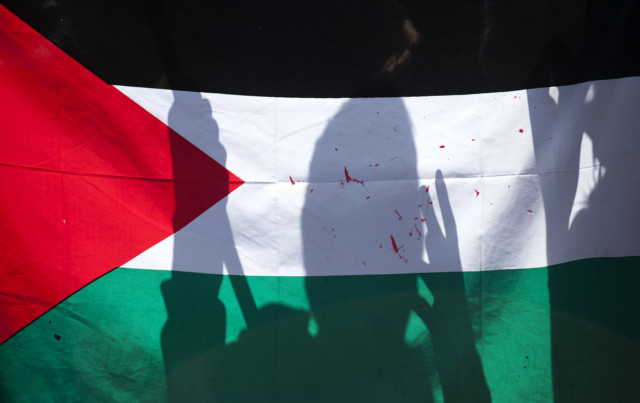
Qatar’s Emir Shaikh Hamad Bin Khalifa Al Thani told Al Jazeera on Sunday that Israel needed to be met with “firm resistance” to stop its aggression against Palestinians, “like what happened in Gaza and with Lebanon’s Hezbollah in the south”.
Hezbollah’s confrontations with Israel have largely been characterised with the unpredictability with which the group operates, its military surprises and the psychological warfare it wages with its enemy in the asymmetrical military conditions it has to contend with.
In a speech during the 2006 Israeli war on Lebanon, its secretary-general Hassan Nasrallah famously promised to hit “Haifa and that which lies beyond Haifa”, alluding to the Israeli metropolis of Tel Aviv down the Mediterranean coast.
The Haifa promise was delivered, leading to a surge in the party’s regional popularity for bringing large parts of Israel to its knees, but the Tel Aviv promise was left unfulfilled.
That promise was however rather unexpectedly fulfilled by Hamas, the Gaza based group whose military struggle with Israel has been largely reactive, not proactive. On Wednesday November 14, a Hamas rocket rained down on the outskirts of Tel Aviv 70 kilometres off Gaza.
Images of the otherwise vibrant city’s partygoers and sunbathers running for cover were watched with awe in Gaza and beyond. Only Saddam Hussain had managed to terrorise Israelis like this, commented many Arabs, in reference to the firing of scud missiles at the city during the Gulf War.
Gaza-based fighter groups have come a long way since the last Israeli war on the territory in 2009, showing a new level of sophistication and planning in the groups’ methods. Hamas’ repeated promises of “surprises”, their fulfilment, and its information and disinformation campaigns have made headlines in Israel and had Israeli officials rushing to issue denials.
But this sophistication is perhaps most visible in places the Palestinians have a level playing field with Israel. Israeli methods of striking at the Palestinian public’s morale by communicating directly to them via the dropping of flyers or sending text messages has been matched with Islamic Jihad’s recent sending of 5,000 Hebrew text messages to Israeli soldiers warning that they would turn Gaza into their “cemetery” if a ground invasion was initiated. According to the Israeli media, such methods have succeeded in causing concern among soldiers.
Like Israel, Palestinian groups have made extensive use of social media, using twitter and YouTube for propaganda purposes and in order to publicise their military achievements. Israel’s attempt to up the ante on twitter was reportedly met with a brief suspension following the latter’s threatening tweets recently, and an assassination video posted by its military on YouTube was taken off then put back on again.
Hamas’ proactive methods and its offensive rather than defensive military tactics have so far gained it much popularity in Gaza and the wider region at the expense of the Palestinian Authority in Ramallah.
Gazans, while burying their dead and bracing for more Israeli attacks, appear to be firmly behind the coastal strip’s rulers for now. This is likely to be a cause for concern for its detractors in the West Bank, and crucially, in Israel. It is perhaps also going to be a yet another reason for Israel to launch a ground invasion.












